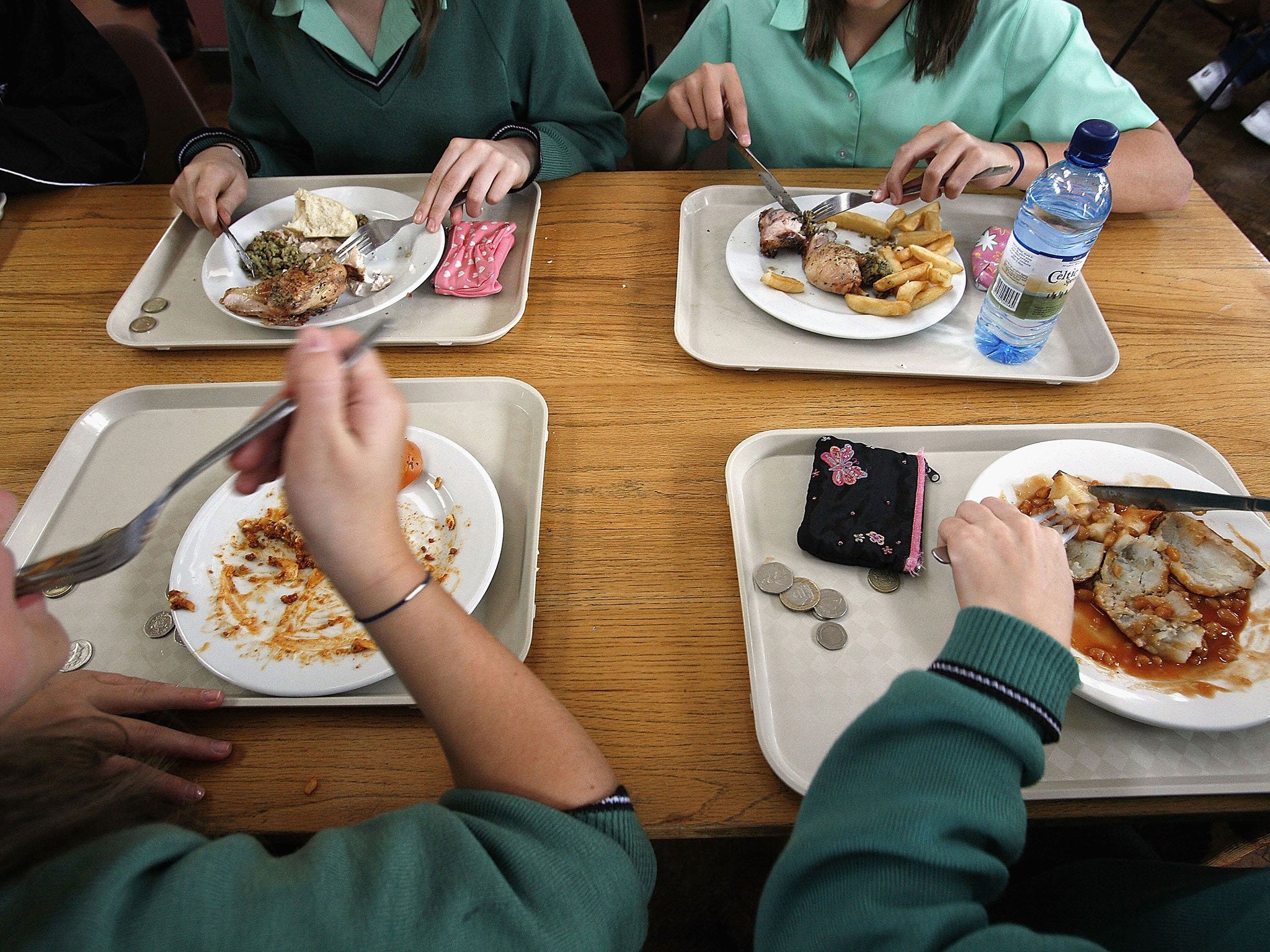Coronavirus: Education leaders criticise ‘failed’ free school meals voucher scheme for children during lockdown
‘System has been incredibly difficult for families to access,’ one head teacher tells Zoe Tidman


Children have been struggling to receive food vouchers while schools have been closed due to coronavirus despite a government scheme designed to fill the gap, headteachers have said.
Pupils normally on free school meals have been offered vouchers to ensure they do not go hungry while staying at home, but education leaders have told The Independent the government scheme – which has been running for more than a month – has been rife with problems.
Steve Chalke, the founder of the Oasis trust – which has around 50 schools in England – said they estimated nearly 6,000 children had not received their vouchers last month out of 12,000 eligible pupils across his trust and eight others they work with.
He said the system has been “fraught with problems” – and ensuring children have access to food is one of the reasons he believes schools should be reopened as soon as possible, amid a row between the government and some teaching unions over plans for some primary school classes to resume on 1 June.
The situation has now improved somewhat, he added, and the problems may have been due to a host of reasons, including emails ending up in spam, some families not having printers or struggling to download the vouchers.
He said Oasis have started using one person to coordinate a school’s vouchers with Edenred – the private company managing the scheme – rather than individual parents handling theirs, which has been more successful.
Poorer pupils in England can claim £15 weekly tokens for a host of supermarkets under the government’s scheme, which can be ordered using the Edenred’s online portal.
This is an option if the school catering service cannot provide meals or food parcels to children at home, the government said, adding they are working to increase the number of supermarkets involved as they ”recognise that it may not be convenient or possible” to visit the ones listed.
Alex Rawlings, a headteacher of a West Midlands primary school, said the voucher system had been difficult to manage.
“Schools either couldn’t register, or they would be waiting in online queues for hours upon hours,” he told The Independent. “The system would often crash when you used it.”
He said customer support was always busy and sometimes emails would not be answered for weeks.
“It is still going on now,” the headteacher of Quarry Bank primary school added.
Darren Morgan, a primary headteacher in Manchester, told The Independent a school employee had to work evening and weekend shifts in order to access the website.
“The reason it was really difficult for schools was we weren’t just dealing with this,” he said. “We were dealing with a thousand of really complicated other issues as well.”
Meanwhile in North Yorkshire, a school leader said his school had also faced issues trying to get eligible children their vouchers during the coronavirus crisis.
“Some parents are still not receiving them,” Simon Smith from East Whitby primary academy told The Independent. “We’ve provided and delivered weekly food parcels and worked with local food banks to make sure our families haven’t gone hungry.”
The minister for children on Monday said schools should provide meals or food parcels through existing food providers “wherever possible” to help children normally on free school meals while they are staying at home during the pandemic.
“However, we recognise that providing meals and food parcels is not a practical option for all schools,” Vicky Ford said in response to a written parliamentary question.
“That is why on 31 March we launched a national voucher scheme with costs covered by the Department for Education (DfE).”
However, Chris Parkhouse, a headteacher of a Harrogate school, told The Independent the government had “failed” to provide a viable alternative to free school meals.
“The voucher system has been incredibly difficult for families to access,” he said.
He said a neighbouring school in Leeds has had “tonnes of food delivered” to help its students.
Mr Chalke from the Oasis trust – which also runs food banks and food poverty projects – said they have also been working to get food to pupils.
He said one of their primary schools in Hobmoor, Birmingham, had collaborated with a local church to help provide children with meals.
“We turned the kitchen there into a community kitchen,” he said.
Elsewhere, Oasis food banks have also done food packages for children. “We are producing several thousand meals a week,” Mr Chalke told The Independent.
Meanwhile, one food bank said they are still seeing the same number of families ask for help as when the scheme started in early April.
Hannah Worsley, the manager of Norwich food bank, told The Independent: “The number of families we are feeding hasn’t gone down in these last six weeks.”
“If people are getting the vouchers, they either are not going far enough or they are not being able to be used.”
Mr Chalke, the founder of the Oasis trust, said the system using one company for the whole country had made things difficult for schools and parents to use.
“We know these things work best locally,” he said. “It has been the centralisation of it that has failed us and everyone.”
Speaking about the voucher scheme on Monday, the minister for children said: “Schools are best placed to make decisions about the most appropriate arrangements for eligible pupils. This can include food parcel arrangements, provision through the national voucher scheme or alternative voucher arrangements.”
Edenred said it has provided £92m worth of supermarket e-gift vouchers to families and schools, as of 19 May, and that “the scheme continues to get easier and faster to use”, despite parents and schools “facing minimal or no waiting time when ordering online”.
A DfE spokesperson said: “We continue to encourage schools to work with their suppliers to arrange food parcels or collections for families eligible for free school meals. There are some outstanding examples of where schools across the country are using their own offers to support the children who need it most.
“Where that is not possible, the national voucher scheme was launched for schools to provide supermarket vouchers, which is delivering for thousands of schools."
The spokesperson added: “Improvements have been made to Edenred’s systems and we expect them to continually improve to meet this unprecedented situation.”
Join our commenting forum
Join thought-provoking conversations, follow other Independent readers and see their replies
Comments